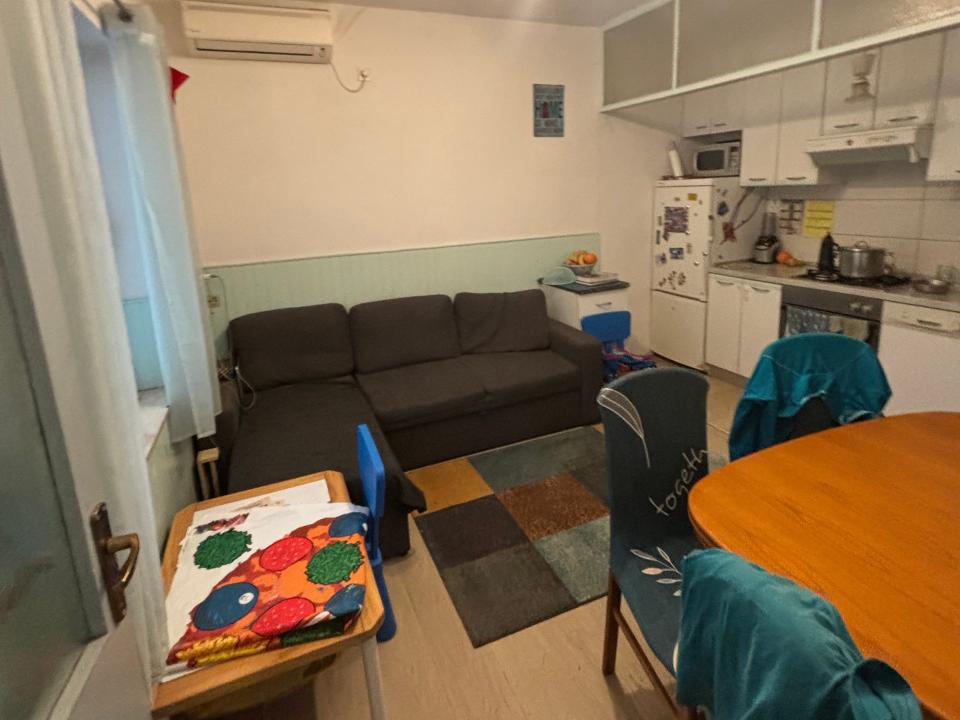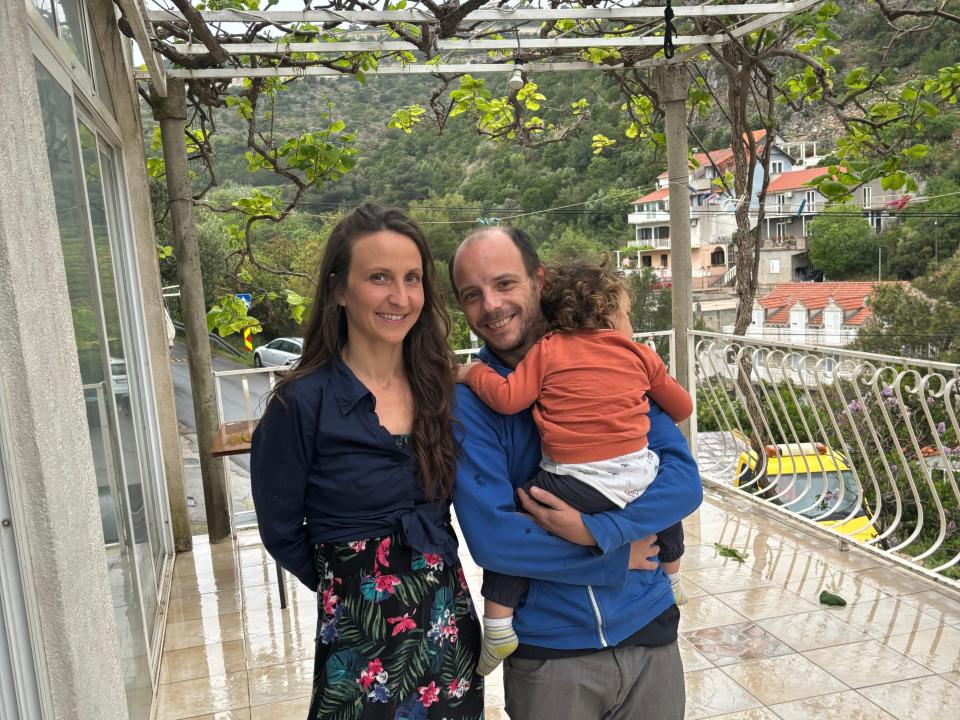My husband and I live with my parents in our mid-30s, like many in Croatia. It's a lifesaver for working parents like us.
Diana Marlais and Bogdan Dascalescu, both in their 30s, live in her parents' Dubrovnik home.
Croatia has the highest average age in the EU for people leaving their parents' houses.
Living in a multi-story home with family has its perks, they said, but also its downsides.
This as-told-to essay is based on a conversation with Diana Marlais, 35, and Bogdan Dascalescu, 37, a couple who run an escape-room business in Croatia. They live in a multi-story home with their children, Marlais' parents, and her brother and his family.
Croatia has the EU's highest average age — 33.4 years old — for people leaving their parental home.
The conversation has been edited for length and clarity.
Diana: I was living in Romania, where I met Bogdan. Bodgan proposed setting up an escape room in Zagreb, Croatia's capital.
I didn't know what to expect, but we loved it. We then decided it would be cool to open another one in Dubrovnik, my hometown.
So, in 2017, I returned to Dubrovnik and moved back into my parents' house. This is far from unusual in Croatia.
My brother lived upstairs with his wife and three kids. Above them, my other brother still lives with his wife and two kids. Finally, my parents live in the attic.
My parents originally built this place brick by brick. Initially, it only had two bedrooms: one for them and one for my brothers.
Then, when my brother was preparing to marry, my sister-in-law made a floor plan for another story. My father said, "OK, but if we're building that, let's build another floor, just in case."
Now, each of us has a floor with separate entrances. We never lock our doors.
Bogdan: It was funny for me to see this. I grew up in Romania, where you tend to have one floor, and that's it. If you have two or three stories, it shows you have serious money.
I came here, and I saw a lot of houses that didn't have a roof yet.
I asked why that was, and someone explained to me: 'You make a kid, you build another floor, you make a kid, you build another floor, and so on.'
Each floor is independent, so you have privacy. In our home, even if the door is open, nobody will just barge in.

Diana: Sometimes, however, we cross each other's boundaries, but ultimately, that's normal. After we had kids, we had to re-establish those boundaries more clearly.
Bogdan: I think it was harder for me because they all know each other well — they are family — and I kind of just came in. It was harder to learn what those boundaries were.
'It takes a village to raise a child'
Diana: We don't cook, but my mother loves to cook. She's the glue that keeps us together because everyone comes when she makes a family lunch.
Also, every day at four, my brother comes home from work, goes up to eat, and we have coffee.
We are constantly together as a family, and my nephew loves interacting with our kids. Having someone there with them is great, and not just everything falls on us.
Living like this, I've come to understand that it takes a village to raise a child. It is so important to have more people involved.
Nowadays, we're more connected than ever, thanks to technology and modern-day luxuries, yet so many of us are still anxious, depressed, and disconnected. That's not how it is supposed to be.

I think that way of living is not normal. I think this is the more natural way of living, in a way that is not tainted by this Western individualistic struggle and striving for success.
'If we didn't live with my parents, I don't know how I would go to work'
It's nice for our kids to have their grandparents nearby. It's amazing for the grandparents to see their grandkids every day. They have such a strong bond, which is beautiful to see.
They're also useful. It's not just, 'Let's go and see the grandparents because it's an obligation because they're older.'
No, we love going to see them. It adds richness and value to our lives, and the kids learn many things from them.
Bogdan: From us, they get this modern approach to family. From them, they get these old, traditional values. They get the best of both.

A lifesaver as working parents
Diana: If we didn't live with my parents, I don't know how I would go to work, walk the dogs, and do everything I do.
During peak tourist season, our work is very unpredictable. You never know when you will get a group for the escape rooms. Sometimes, you're at work until 6 p.m.; sometimes, it's until 10 p.m.
It was especially difficult for me last year. One child was one, and the other was two. Having my mother jump in was a huge help because, without it, I would not have been able to dedicate myself fully to both of my kids.
I can tell you that when I was in Romania for three months, setting up an escape room there, Bogdan worked a lot on the project while I was home alone with the kids.
It made me realize how much of a load is often on women, ensuring our children are alive, fed, and changed.
I was much more miserable and cranky and found myself yelling more at our kids. I feel like I'm a better parent because of the support we have.
Bogdan: We are very lucky.
Diana: I am so happy that we live like this and didn't move away, only coming here once a year during the summer.
If we won the lottery, yes, I would buy a different place — a house with lots of land where the dogs can run around and the kids can play freely.
But I would still choose this dynamic — I would like to still live with my family.
Read the original article on Business Insider

 Yahoo News
Yahoo News 
